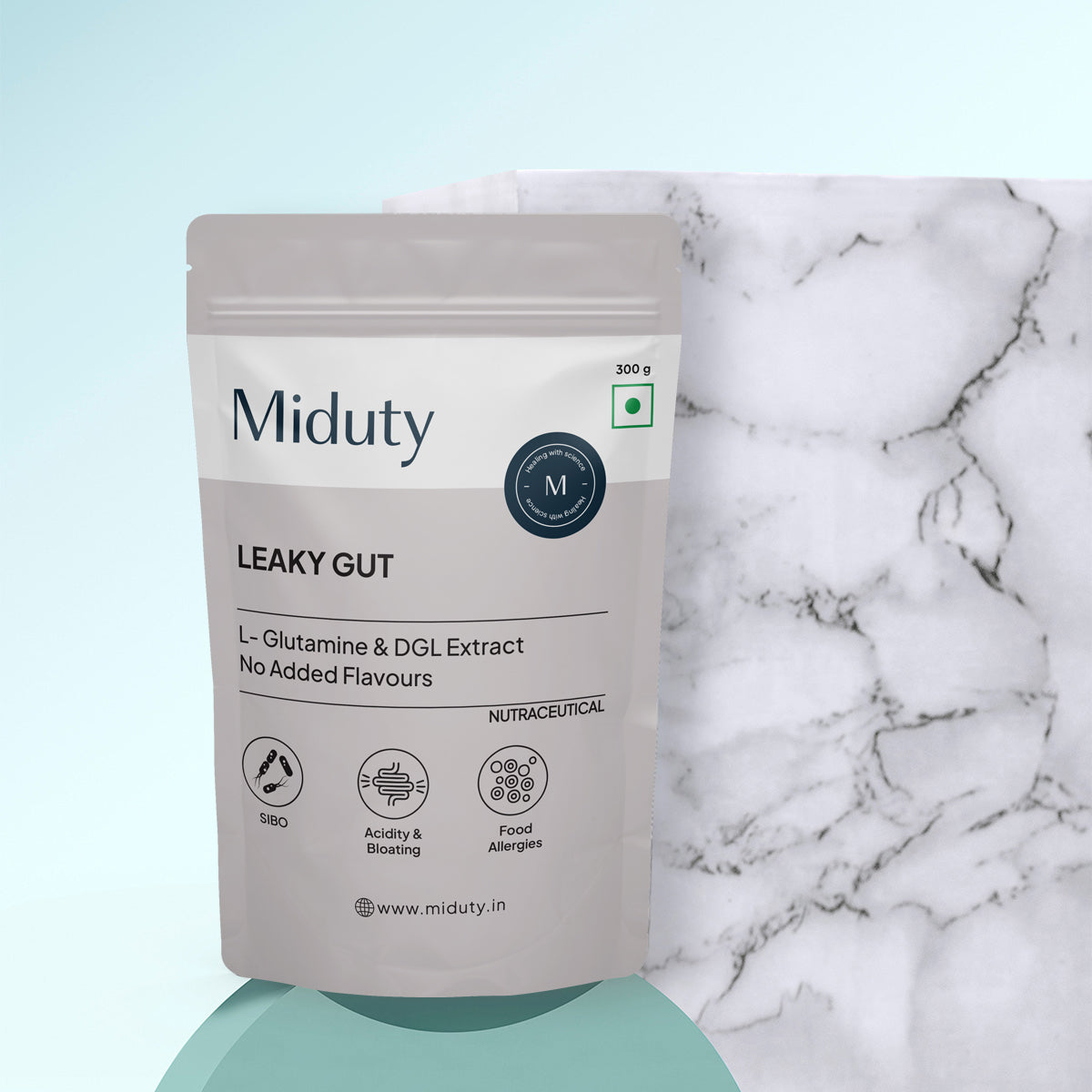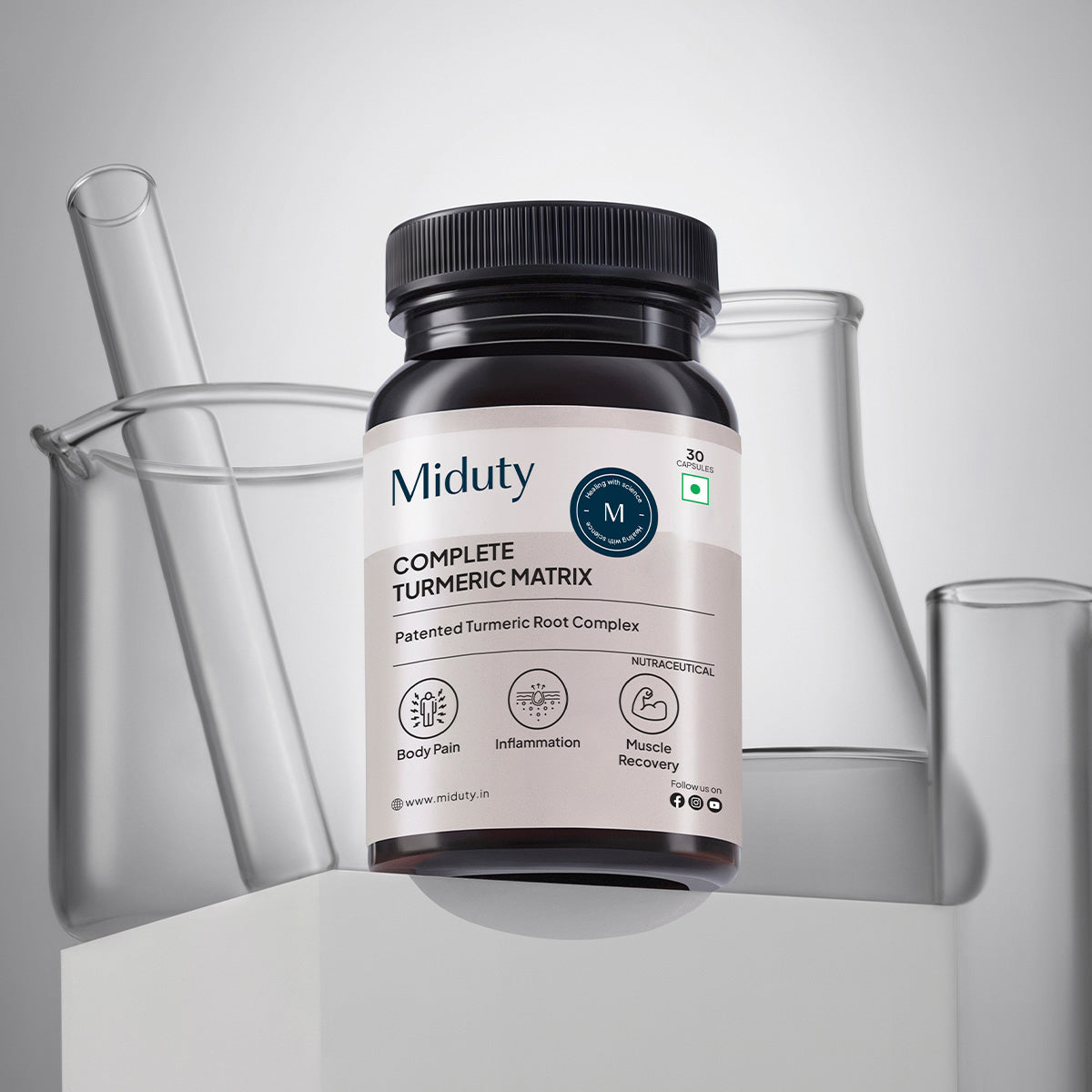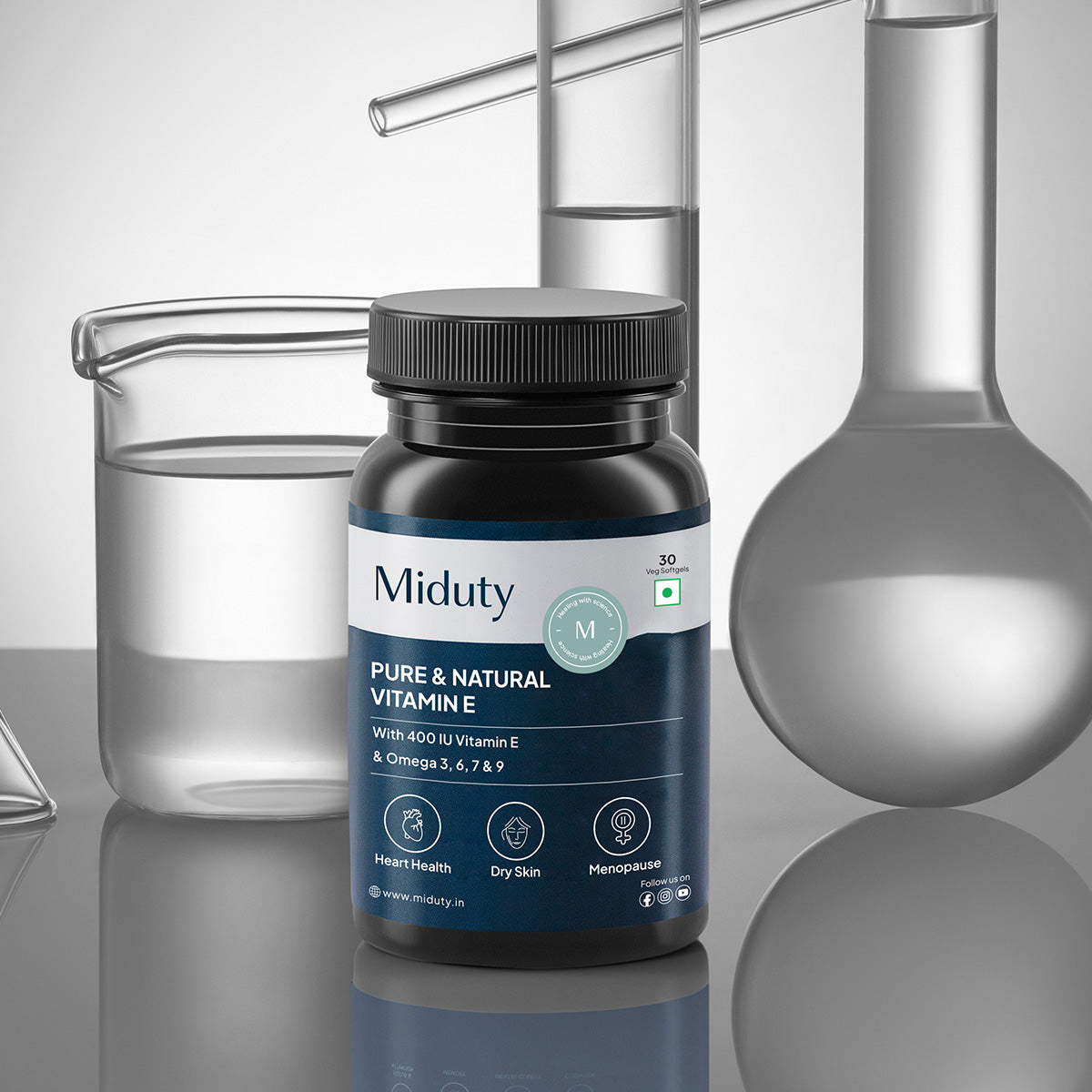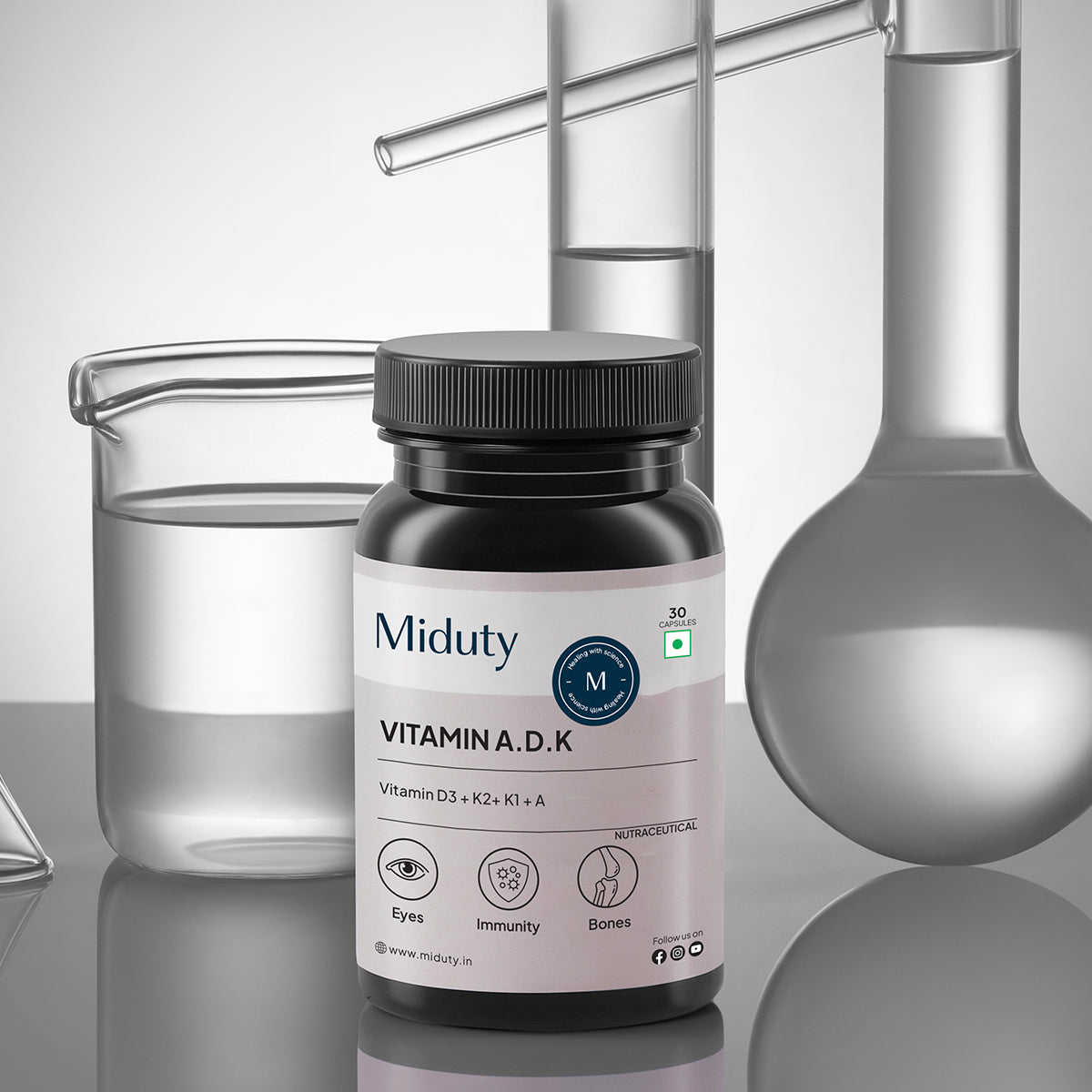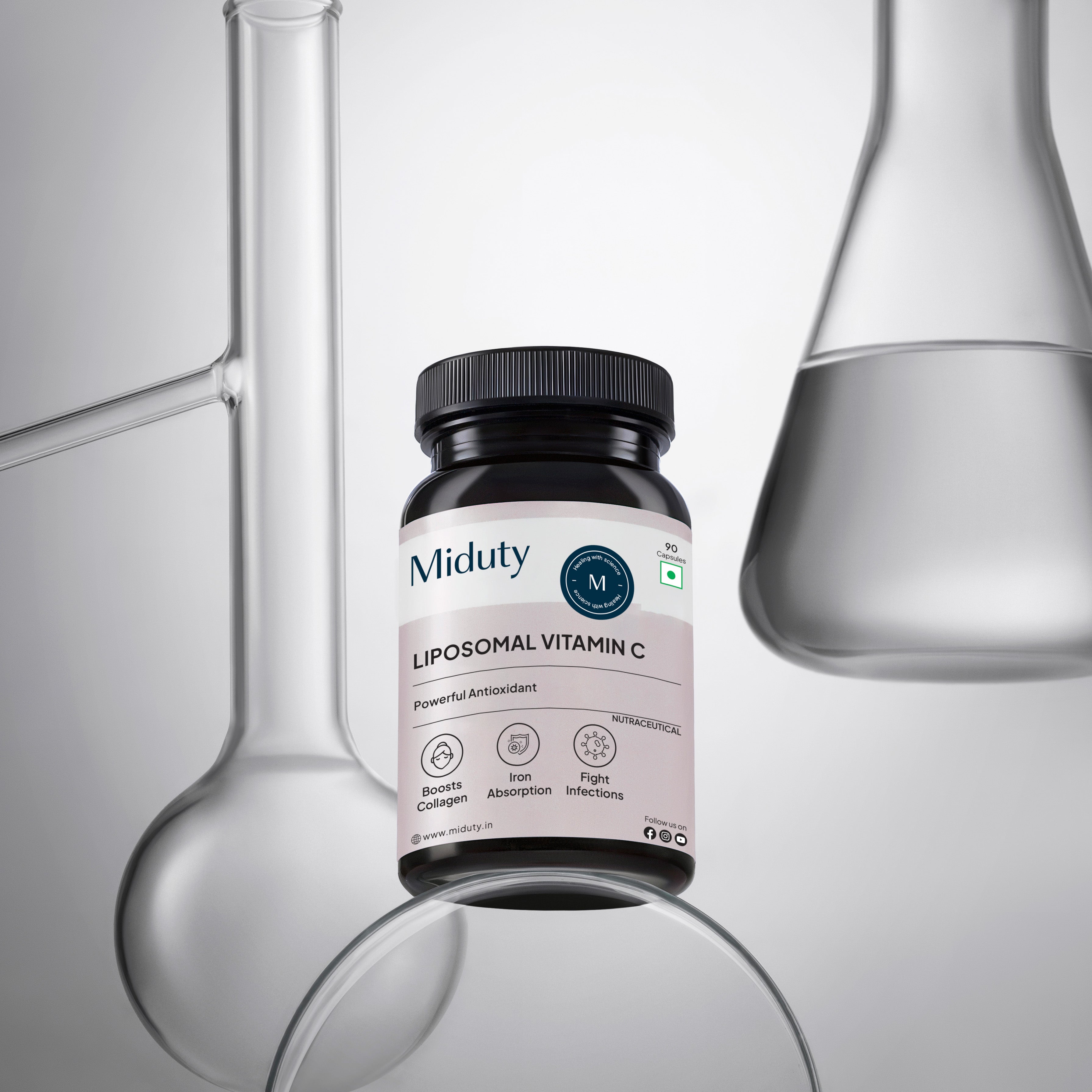
Foods To Eat & Avoid For Reversing Fatty Liver Disease
Feeling tired all the time? Struggling with belly fat, skin issues, or brain fog? Your liver might be silently crying for help, and your diet could be to blame.
Liver disease is no longer just a drinker's problem. The fastest-growing form of liver damage in India today has nothing to do with alcohol, it's caused by what we eat and absorb. Known as Non-Alcoholic Fatty Liver Disease (NAFLD), this condition now affects more than 38% of urban Indians, often without any warning signs.
Key Takeaways:
1. 38% of Urban Indians Have a Silent Liver Condition: Non-Alcoholic Fatty Liver Disease (NAFLD) is spreading rapidly even among teens. Find out if your daily habits are putting your liver at risk.
2. It's Not Just About Sugar or Booze: From "healthy" vegetable oils to gluten-loaded snacks, discover the everyday foods silently harming your liver and what to replace them with.
3. Food Is Medicine: If You Know What to Eat: Learn which superfoods like beetroot, turmeric, and cruciferous greens actively repair your liver and reduce fat buildup.
4. Try the 16:8 Intermittent Fasting Method: A simple lifestyle tweak like eating within an 8-hour window each day can reduce liver fat, improve detox, and boost energy. We show you how to start safely.
5. Start Every Morning with Warm Lemon Water: A daily glass of warm lemon water jumpstarts liver detox, supports digestion, and boosts vitamin C levels. It's easy, refreshing, and effective try it tomorrow!
Modern diets packed with sugary drinks, deep-fried snacks, maida-heavy foods, and trans fats are taking a toll on our liver health even in young adults and teenagers. A 2021 study published in the National Library of Medicine highlights that NAFLD is quickly becoming the leading cause of chronic liver disease in India, silently progressing to more severe conditions like liver cirrhosis and even cancer.
The most alarming part? Liver damage often shows no symptoms until it reaches a critical stage. By the time fatigue, bloating, or dull skin appear, your liver could already be struggling to function.
However, your liver is a resilient organ that can regenerate if you feed it properly. And that transformation begins with your plate.
In this blog, we will explore:
- The worst foods secretly harming your liver,
- The best nutrients and foods to restore its health,
- And practical lifestyle tips to keep your liver clean, strong, and thriving.
- Free Diet plan to reverse fatty liver disease
Ready to take control of your health? Let's start with what's on your plate your liver will thank you later.
Why Liver Health Matters More Than You Think?
The liver doesn't get the spotlight it deserves. This 3-pound organ works like a chemical factory and detox station, performing over 500 functions every single day.
Some of its most important roles include:
- Filtering out toxins from your blood
- Breaking down medications and alcohol
- Producing bile to digest fats
- Storing vitamins and minerals
- Regulating blood sugar and cholesterol levels
The Worst Foods for Your Liver: More Than Just Sugar and Alcohol

When it comes to healing your liver, food is medicine but only if you know what to eat and what to skip. The goal is simple: reduce liver fat, control blood sugar, and fight inflammation. The best diet for fatty liver? Think Mediterranean-style eating not keto, not crash diets. When we think about liver health, the usual suspects like alcohol and junk food immediately come to mind. But there's a wide range of foods that quietly sabotage your liver, many of which are marketed as "healthy." If you're serious about detoxifying and protecting your liver, here are more foods you should be avoiding:
1. Vegetable Oils and Industrial Seed Oils
Canola, soybean, corn, sunflower, and safflower oils are commonly used in cooking and processed foods. Though marketed as "heart-healthy," these oils are often highly refined and oxidize easily, generating free radicals that damage liver cells.
Why are they harmful?
- Promote oxidative stress and inflammation
- Disrupt liver cell membranes
- Linked to fatty liver development in animal studies
Common sources: Fried foods, margarine, baked goods, salad dressings, and packaged snacks.
Better alternative: Use cold-pressed coconut oil, olive oil, or ghee.
2. Artificial Sweeteners
Sweeteners like aspartame, sucralose, and saccharin are low in calories but high in toxicity for your liver. The liver must process and detoxify these synthetic compounds, adding to its workload.
Concerns include:
- Disruption of gut-liver axis
- Negative effects on glucose metabolism
- Potential to worsen insulin resistance
Found in:
Diet sodas, sugar-free gums, protein powders, and "diabetic-friendly" products.
3. Farmed Fish
Unlike wild-caught fish, farmed fish like tilapia and farmed salmon often carry high levels of dioxins, PCBs, and antibiotics, all of which burden liver detox pathways.
Why it matters:
- Toxins from feed and the environment accumulate in the fish
- Inflammatory omega-6 to omega-3 ratio is poor
- Can contribute to fatty liver and hormone disruption
4. Pasteurized Dairy
While raw, organic dairy may be tolerated by some, conventional pasteurized dairy (especially from hormone-treated cows) can create mucus buildup and congest the lymphatic and liver systems.
Issues include:
- Triggers for food sensitivities
- Hormonal residues burden liver metabolism
- May contribute to insulin resistance
5. Gluten and Refined Wheat
Many people have non-celiac gluten sensitivity, which triggers systemic inflammation, and the liver takes a direct hit. Refined wheat flour spikes blood sugar and increases fat storage in the liver.
Why avoid:
- Promotes leaky gut, impacting liver detoxification
- Worsens NAFLD by spiking insulin
- Often paired with other inflammatory ingredients (sugar, seed oils)
6. Microwave Popcorn
This convenient snack contains trans fats, artificial flavorings like diacetyl, and chemical-lined bags (with perfluorooctanoic acid or PFOA), all of which are toxic to your liver.
Concerns:
- Endocrine disruption
- Accumulation of liver-damaging toxins
- Linked to metabolic diseases
7. Protein Powders with Fillers
Many commercial protein powders are loaded with maltodextrin, artificial flavors, gums, and synthetic vitamins, all of which can stress your liver.
Watch out for:
- Incomplete or low-quality proteins
- Added sugars and emulsifiers
- Heavy metals in some cheap protein brands
8. Excess Caffeine
While moderate coffee consumption may support liver health, excess caffeine from energy drinks, sodas, or multiple cups of coffee daily can dehydrate the liver and strain adrenal function.
Why be cautious:
- Overstimulates the nervous system
- Increases cortisol, impairing liver detox
- Often consumed with sugar and artificial additives
9. Sugar and High-Fructose Corn Syrup
That innocent-looking soda or sweetened iced tea? It's one of the worst things you can drink for your liver. Fructose, a type of sugar found in many processed foods and beverages, goes straight to the liver, where it's turned into fat. Too much of it overwhelms your liver and leads to fat buildup, a direct path to NAFLD.
- Soft drinks and energy drinks
- Store-bought juices
- Flavored yogurts and granola bars
- Ketchup, sauces, and salad dressings
Even so-called "healthy" foods are often loaded with hidden sugars. Reading labels is a must.
The Best Foods for Liver Health

If you are looking to supercharge your liver health and support natural detox pathways, it's time to explore some less conventional yet incredibly powerful liver-loving foods.
1. Beetroot
Beetroots are rich in betalains, compounds that support the liver's detoxification processes, particularly Phase 2 detox, which involves neutralizing toxins so they can be safely excreted.
Why they help:
- Boost production of glutathione (a key liver antioxidant)
- Improve bile flow
- Help reduce oxidative stress
Tip: Drink beet juice or add roasted beets to salads a few times a week.
2. Leafy Greens and Cruciferous Vegetables
Kale, spinach, arugula, broccoli, and Brussels sprouts are rich in antioxidants, fiber, and phytonutrients that support detoxification and reduce liver fat. Studies show cruciferous veggies increase liver enzymes that flush out toxins and fight inflammation.
Tip: Try to eat at least one cup per day.
3. Fermented Foods
Kimchi, sauerkraut, kefir, miso, and raw apple cider vinegar feed your gut microbiome, which in turn supports liver detoxification via the gut-liver axis.
How they help:
- Reduce the burden of endotoxins
- Improve digestion and nutrient absorption
- Strengthen the immune system (which includes liver defense)
Incorporate them daily: A spoonful of fermented veggies with meals can go a long way.
4. Turmeric
Curcumin, the active compound in turmeric, is a potent anti-inflammatory and antioxidant that shields the liver from damage and enhances regeneration.
Benefits:
- Increases bile flow
- Protects against fatty liver disease
- Fights liver fibrosis and oxidative stress
Pro tip: Combine turmeric with black pepper and healthy fats to increase absorption.
5. Avocados
Avocados have glutathione, vitamin E, and healthy monounsaturated fats, all essential for liver function and protection.
Why it matters:
- Supports detox enzyme activity
- Reduces oxidative stress
- Improves cholesterol balance
Use it in: Smoothies, salads, or simply mashed on toast with lemon and herbs.
6. Garlic
Garlic contains allicin and selenium, both of which support liver enzyme production and help the liver clear out toxins, especially heavy metals and environmental chemicals.
Benefits:
- Activates liver detox enzymes
- Reduces oxidative damage
- Natural antibacterial and antiviral support
Use fresh: Add crushed garlic to sauces, soups, and marinades.
7. Cilantro
Cilantro may help your body bind and eliminate heavy metals like mercury and lead, which can otherwise burden your liver over time.
Why it's useful:
- Binds to metals and assists in excretion
- Supports the body's natural detox system
- Antioxidant-rich and anti-inflammatory
Add to: Green smoothies, salsas, or use as a garnish on warm dishes.
8. Lemons and Limes
These citrus fruits are rich in vitamin C, which helps the body produce glutathione and improves bile production for better liver cleansing.
What they do:
- Stimulate liver enzymes
- Support immune function
- Aid in hydration and digestion
Start your day with: A glass of warm lemon water for gentle daily detox.
Lifestyle Tips to Support Liver Function Naturally
1. Practice Intermittent Fasting or Time-Restricted Eating
Giving your digestive system regular breaks can reduce liver burden and enhance its efficiency.
Why it works:
- Promotes fat burning and reduces liver fat
- Improves insulin sensitivity
- Enhances cellular repair through autophagy
Try this: Begin with a 12:12 eating window and gradually shift to 16:8, depending on your lifestyle and needs.
2. Reduce Exposure to Environmental Toxins
Your liver is the main organ responsible for processing xenoestrogens, pesticides, heavy metals, and chemical additives.
How to lower toxic load:
- Use glass or stainless-steel containers instead of plastic
- Choose organic produce when possible (especially EWG's Dirty Dozen)
- Avoid synthetic air fresheners, conventional cleaning products, and aluminum-based deodorants
- Upgrade your environment: A high-quality HEPA air purifier and non-toxic household items can go a long way.
3. Prioritize Quality Sleep (Especially Between 10 PM and 2 AM)
The liver performs its most intense detoxification work during deep sleep, particularly during early nighttime hours.
Benefits of good sleep:
- Enhances liver regeneration
- Balances circadian rhythm and hormone detox
- Reduces inflammation and oxidative stress
Optimize your sleep: Avoid blue light before bed, use blackout curtains, and maintain a consistent sleep schedule.
4. Get Daily Sunlight and Grounding (Earthing)
Sunlight helps your body produce vitamin D, which plays a role in immune and liver function. Grounding (walking barefoot on natural surfaces) reduces inflammation and improves circadian rhythm.
Why it matters:
- Natural light sets your body clock
- Grounding helps regulate cortisol, reducing liver stress
- Vitamin D deficiency is linked to NAFLD
Tip: Aim for 20 minutes of sunlight and barefoot contact with earth every day.
5. Limit EMF Exposure (Electromagnetic Fields)
Some holistic practitioners, including Dr. Mercola, emphasize the link between electromagnetic stress and liver dysfunction due to oxidative stress and disrupted sleep.
How to reduce EMFs:
- Turn off Wi-Fi at night
- Don't sleep with your phone next to your head
- Use airplane mode when possible
EMF-free nights: Even small changes can help reduce your body's overall toxic burden.
6. Staying Active and Managing Weight
Exercise is one of the most powerful tools for reducing liver fat. It boosts your metabolism, improves insulin sensitivity, and helps burn visceral fat, the kind that builds up around your organs.
Aim for:
- At least 150 minutes of moderate aerobic activity per week (brisk walking, cycling, dancing)
- Strength training 2 days a week to build muscle and boost fat-burning
Even daily walking or light yoga can make a huge difference. Combine movement with a clean diet, and your liver will thank you.
7. Add Liver-Supportive Supplements for a Daily Boost
While food and lifestyle are foundational, certain natural supplements can give your liver the extra help it needs to cope with modern stressors like pollution, medications, poor diet, and inflammation.
Some of the best options include:
-
Milk Thistle (Silymarin): Supports regeneration and protects liver cells. Look for: Standardized extract with 70–80% silymarin for maximum potency combined with N-Acetyl Cysteine (NAC) that helps normalize the liver enzymes.
-
Alpha-Lipoic Acid (ALA): ALA works in both fat and water environments, making it extremely versatile in protecting liver cells. Protects against oxidative stress and improves insulin sensitivity.
- Glutathione (Liposomal): Direct antioxidant support for both Phase I and II liver detox. Direct supplementation with glutathione (especially in liposomal form) instead of regular capsules helps maintain optimal liver detox pathways.
Also, to make the job easy, you can download the free 4-week diet plan to reverse the fatty liver.
Conclusion
Your liver works hard every day, filtering toxins, digesting fats, storing energy, and keeping your body balanced. But in today's fast-food, sugar-loaded world, it's under attack often without you even realizing it.
The good news? You have more control than you think.
By making simple yet intentional food choices, avoiding liver-damaging habits, and living an active, balanced lifestyle, you can protect, heal, and strengthen your liver for years to come. Think of your diet as daily medicine every bite can either hurt or help.
The sooner you start, the better your liver will function and the healthier you will feel overall.
Frequently Asked Questions on Fatty Liver Reversal -
Q1. What foods should I avoid in fatty liver?
Avoid sugary foods, refined carbs (like white bread and pasta), fried items, red meat, and alcohol, as they worsen liver fat accumulation and inflammation.
Q2. What foods are good for fatty liver?
Opt for high-fiber vegetables, whole grains, lean proteins (like fish and legumes), healthy fats (like olive oil), and antioxidant-rich fruits.
Q3. Can I eat rice in a fatty liver?
White rice should be limited due to its high glycemic index, but small portions of brown rice or quinoa are better alternatives.
Q4. Can we eat curd in fatty liver?
Yes, plain low-fat curd is good for gut health and can be part of a fatty liver diet, but avoid sweetened or full-fat versions.
Q5. Are bananas OK for fatty liver?
Yes, bananas in moderation are fine they provide fiber and potassium without causing a spike in blood sugar when eaten wisely.
References




